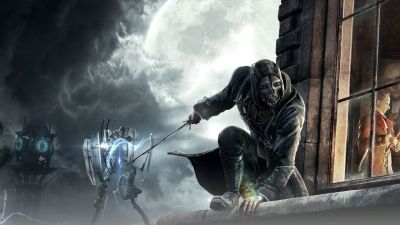If you read my review of the last episode of Life is Strange, you’ll know that I was greatly disappointed.
It’s not that Out of Time was a bad episode by any means. The story explores subjects most developers are terrified to even touch upon, and Dontnod should definitely be applauded for the work that they’re doing in this area, along with the support they’re offering to players; however, this wasn’t enough to take away from the monotonous characters, tedious puzzles and some of the most questionable dialogue since the Resident Evil reboot (I’m still cringing at the goth comment, not quite sure I’ll ever get over that).
I’ll go ahead and say it now before I go any further: Dontnod has managed to redeem themselves massively with the third episode. Beware: the rest of this review contains mild spoilers.
Chaos Theory begins exactly where Out of Time left off. Max is trying to come to terms with recent events and decides that she needs to get to the bottom of exactly what is going on in Arcadia Bay in order to solve the mystery surrounding the disappearance of Rachel Amber once and for all. She once again teams up with Chloe, breaking into Blackwell Academy and exploring the school to try to find evidence that all of the strange occurrences over the last few months are linked.
Character development shines through, revolving mainly around Max and Chloe. Max is getting used to her powers, and she now considers them in a limited capacity, taking care to consider her decisions before making them in case she runs out. Chloe begins to show a more sensitive side to her, explaining all the things that she feels are wrong in her life and how she’s blames other people as she’s too scared to blame herself. It’s an extremely positive aspect of Chaos Theory and something which was massively lacking in Out of Time.
You begin to see your choices also taking a much more dominant role in Chaos Theory. I mentioned in my last review that I was beginning to see the significance of my decisions, and that led to me considering the options available to me in a much more intricate fashion. It’s an aspect of storytelling which really enhances the quality of the game experience
Admittedly, some decisions I was asked to make were still thoughtless. To distract a dog, would I throw a bone into the car park to keep him occupied whilst Chloe and I explored, or would I throw it into the road for the dog to be hit by a car and become quite seriously hurt? I don’t want to hurt a dog, even within a video game, why would I even consider the option to do so?
A decision which had me discovering a large sum of money was much harder to make. Should I leave the money alone, allowing it to be used to help disabled people in some way or form? Or should I take the money, allowing a friend to clear her debt and be in a much safer situation. It was something I pondered over for a solid five minutes, rewinding each time and playing through the scenario over and over again to see if I’d made the correct decision. I’m still not sure if I made the right one, but I suppose I’ll find out in the next episode.
Gameplay follows pretty much the same routine for the majority of the episode and is familiar to both Out of Time and Chrysalis, yet somehow manages to feel fresh and exciting. The puzzles have improved greatly from the previous episode and no longer feel like a feat that needs to be fought through, a menial task which needs to be completed in order to progress. Instead of being stuck on a particular puzzle and getting frustrated at the games design and how Dontnod had put a level together, I was getting frustrated at myself and how bad I am at playing games. It’s always a positive when you don’t get thwarted by your own stupidity rather than unsatisfactory game design.
Special mention should be given to the last half an hour of Chaos Theory. I’m still on a high from the events that unfolded. The end didn’t feel anywhere near as forced as Out of Time, which I felt was shocking for the sake of being shocking, and not as poignant as some made it out to be. Dontnod took a massive risk in what they have chosen to portray and it pays off, making the third episode of Life is Strange the best one thus far.
I should mention however that if you’re thinking of beginning your journey into the world of Arcadia Bay, you should start from the very beginning. Chrysalis and Out of Time may not be on par with Chaos Theory, but they are still worth a play, and lend invaluable context. Life is Strange is an extremely unique experience, and the topics covered are some that too many developers are afraid to even touch. You owe it to yourself to at least try out the first episode and decide for yourself if you should continue to delve further into the story.
Chaos Theory is an episode that is set to leave a lasting memory, in my mind at least. There’s not a game that I have played on this generation of consoles which has made me think and consider my own life choices as much as Life is Strange has. In a time where point-and-click graphic adventures have become the norm, Dontnod is looking to step away from the commonplace tropes set in place already and try something different, and it seems that it’s finally beginning to pay off for them.






